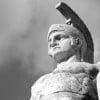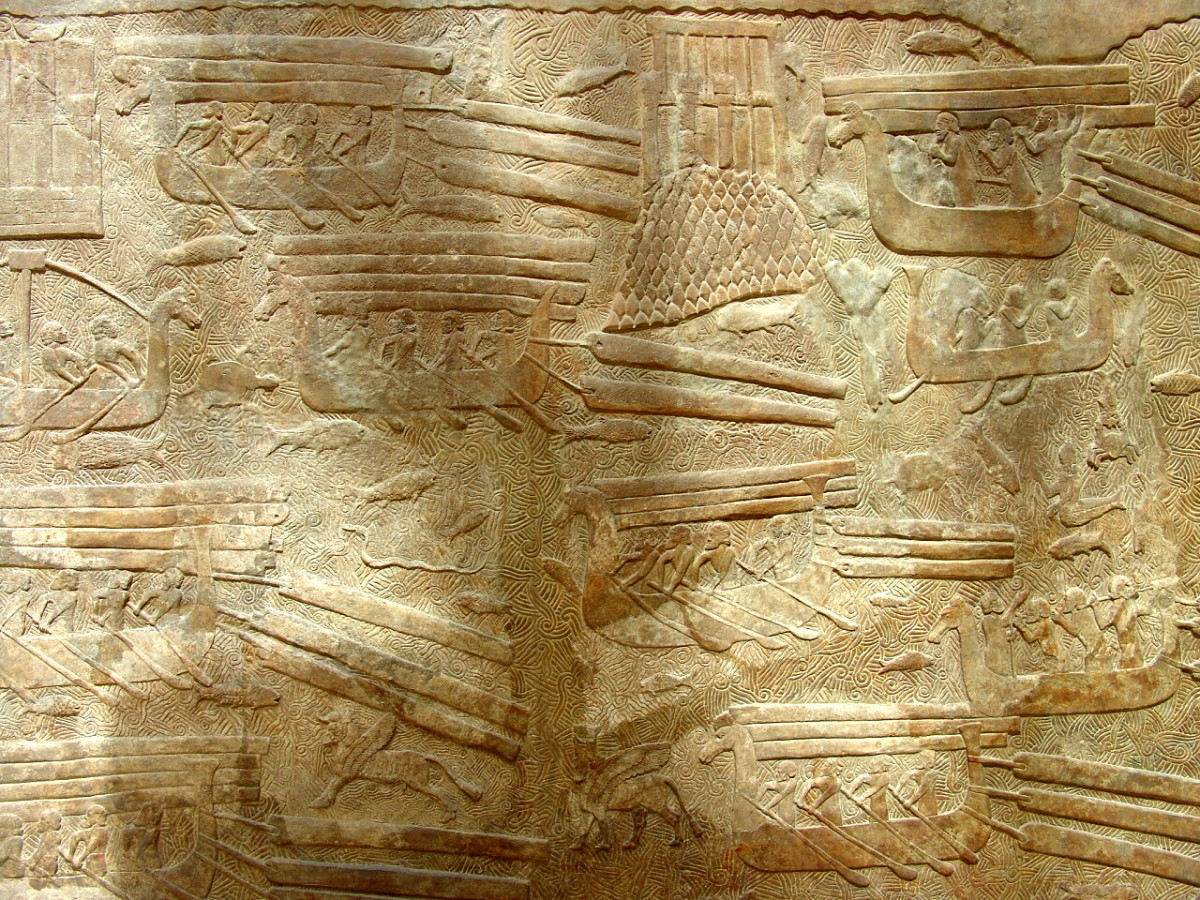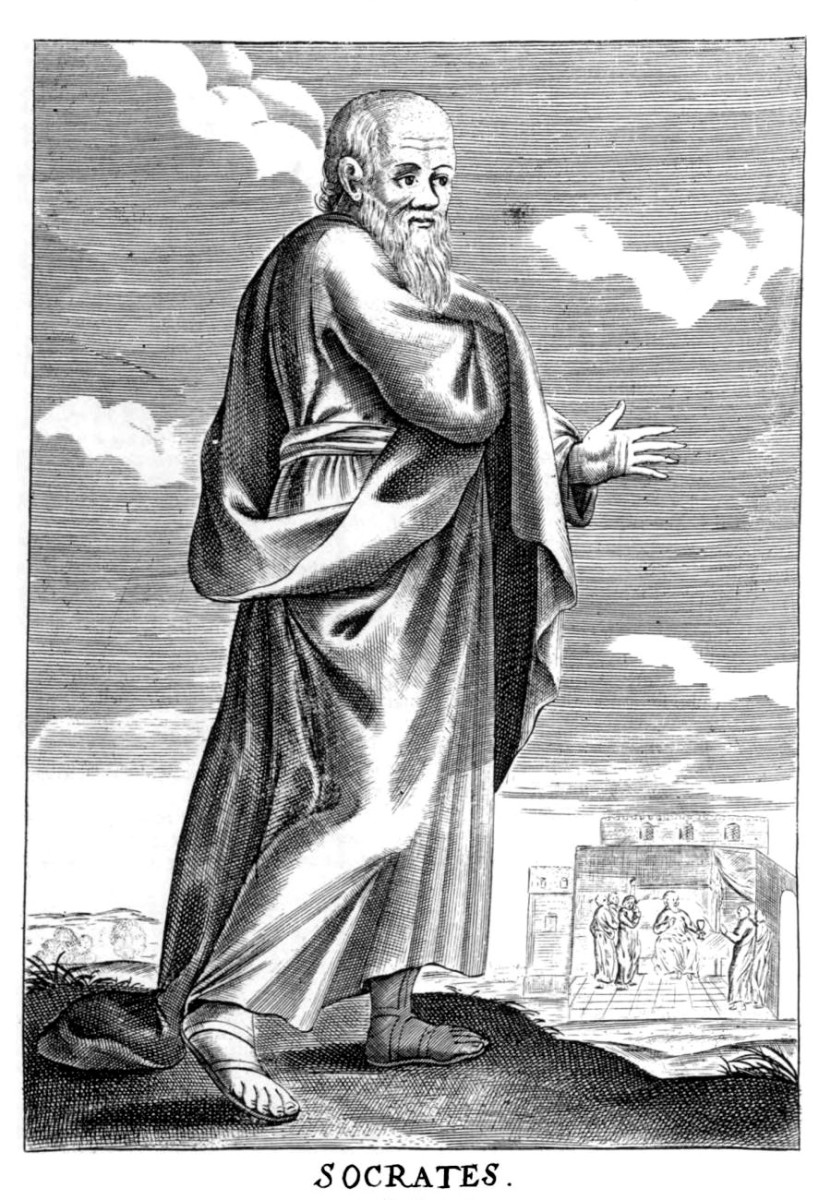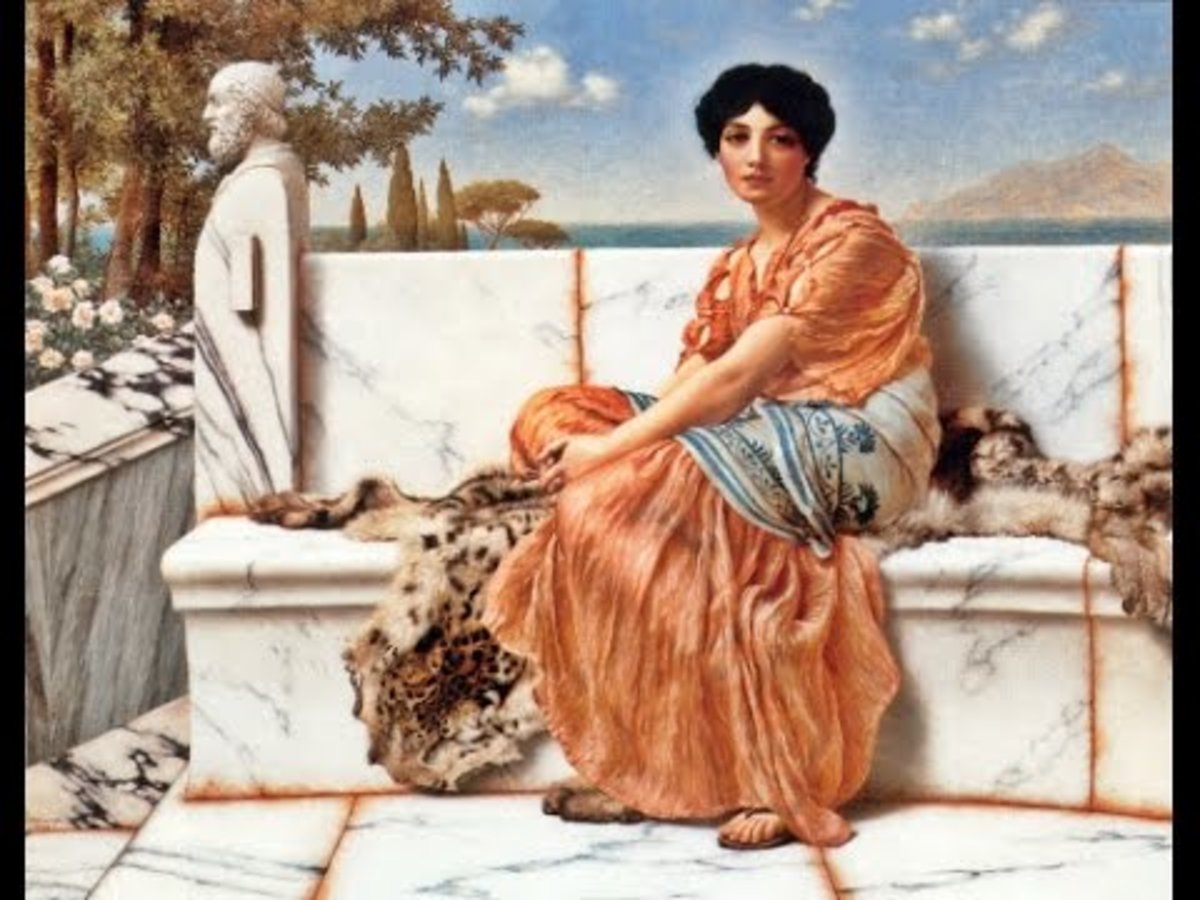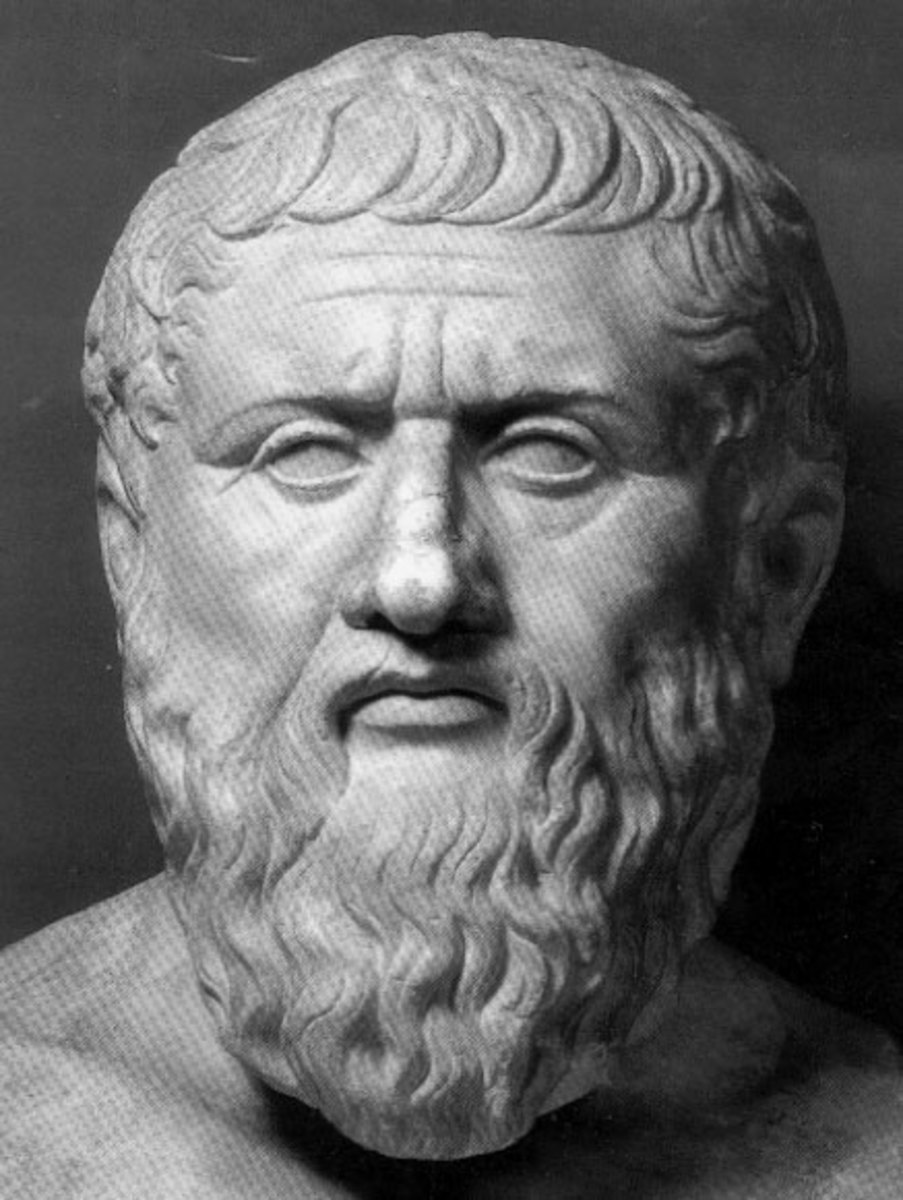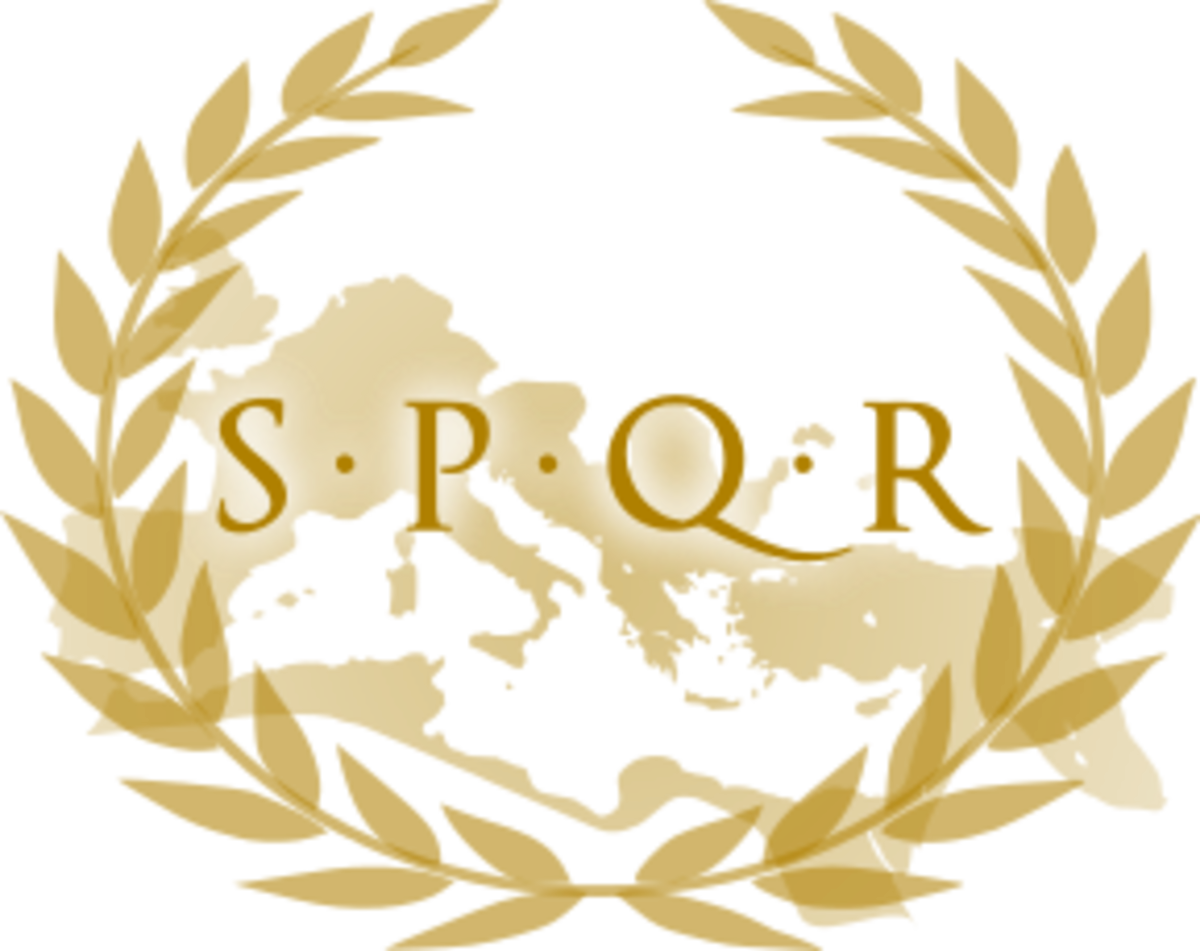Aristotelian Philosophy
Aristotle was an ancient Greek philosopher. Born Stagira, Chalcidice, about 384 B.C. Died Chalcis, Euboea, 322 B.C.
Aristotle was one of the greatest philosophers and scientists of all time. He brought ancient Greek thought to the high point of its systematic development. During the Middle Ages he was considered "The Philosopher" without peer in both the Islamic world and in Christian Europe.
His ideas in such fields as metaphysics (the study of reality), ethics, and aesthetics have been enormously influential on thinkers throughout history. He appears to have been the first man to write systematic literary criticism. He founded the science of logic. His exhaustive comparisons of existing forms of government mark him as probably the earliest political scientist.
His work in psychology was the first scientific treatment of the subject. He founded the science of zoology. His system of physics was accepted for centuries, and some of his biological findings still stand.
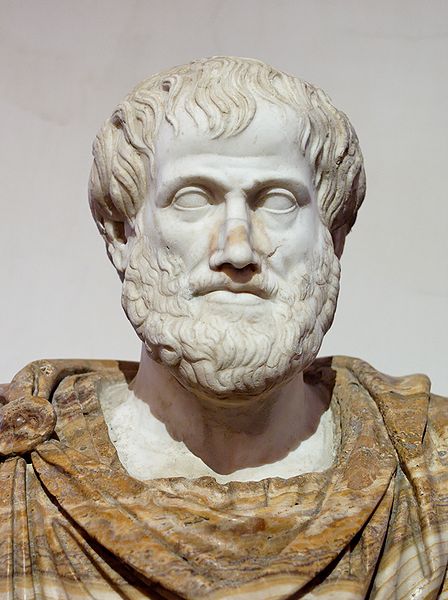
Life of Aristotle
Aristotle was brought up near Macedonia, where his father, Nicomachus, was court physician to the king. When Aristotle was 17, he went to Athens to enroll in Plato's school, the Academy. He studied and taught at the school for nearly 20 years. During this period he wrote several essays defending Platonic philosophy. After Plato's death, Aristotle left Athens and went to Asia Minor to teach. From 343 B.C. to 336 B.C. he was the tutor of young Alexander of Macedonia, who later became Alexander the Great.
Alexander became the ruler of Macedonia in 336 B.C., and Aristotle returned to Athens and founded his own school, which was called the Lyceum. He taught there for 12 years, and during that period he wrote most of his major works. At the Lyceum, Aristotle and his students carried on extensive research that made a lasting mark on the history of many sciences and laid the foundations for new sciences.
When Alexander died in 323 B.C., a surge of anti-Macedonian sentiment swept through Athens and the other Greek city-states. Aristotle was threatened with prosecution because of his association with Alexander and his open criticism of the intense patriotism of the Athenians. Fearing prosecution, Aristotle left Athens and went to Chalcis on the island of Euboea, where he died about a year later.
Works of Aristotle
Most of the writings Aristotle composed while a student at Plato's Academy were popular works written in a simple literary style, often in dialogue form. They were widely read in ancient times, but only fragments quoted by later authors have survived. They include On the Soul, On Justice, arid The Symposium.
The philosophical and scientific works that Aristotle wrote while teaching at the Lyceum were much more complex, because they were intended for the further training of advanced students. They were not formal essays, and the existing texts were possibly written by Aristotle as guides for his lectures. Some of them may have been compiled from notes transcribed by Aristotle's students. Their present form and titles were given to them mostly by scholars who edited the works of Aristotle after his death. The subject matter of these works includes logic, natural philosophy and science, metaphysics, and ethics and politics. Six of Aristotle's treatises on logic are collected under the title Organon. His other well-known works include the Nicomachean Ethics, Politics, Poetics, and Rhetoric.
Aristotelian Logic
Aristotle considered logic, which is the science of reasoning, to be the basic tool of philosophy and science. According to Aristotle, all logical deductions ultimately rest upon premises that the mind can immediately grasp as self-evidently true. When two related premises are joined, it is sometimes possible to deduce a conclusion, or third piece of information. For example, a comparison of the premise "Socrates is a man" with the premise "All men are mortal" will produce the conclusion that "Socrates is mortal". Such a set of three statements is called a syllogism.
Aristotle was the first to formulate the theory of the syllogism as a series of rules of validity. These rules are the basis of Aristotelian logic, which has now been recognized to cover only one special type of elementary reasoning, but which has had a great effect on Western thought.
Theoretical Philosophy
Aristotle believed that knowledge could be true in itself, but that knowledge must come from the evidence of the senses. He used observation and description to explore the world of common experience. In his later writings he attacked Plato's theory of ideal forms independent of material existence, and also questioned the reality of the abstract mathematical figures of Pythagoras.
To Aristotle the substantial reality of an object must exist in the object itself, and not in a higher order of entities. He held that reality consists of matter and form, and that all matter is in a continuous process of developing from one form to another. The form that matter takes is determined by four basic "causes," or principles: the material cause (the wood used to build a ship); the formal cause (the finished shape of the ship); the efficient cause (the work of the shipbuilders); and the final cause (the idea of the ship in the mind of the designer). The material and formal causes depend only on the existence of the matter, but the efficient and final causes depend on the activity of an outside force, or mover, to give imperfect matter a finished form.
However, there must also be a first cause, or primary source of all change. This cause is considered an unmoved mover that is not in itself subject to change and is therefore perfect. It cannot be made of matter, because matter changes and is imperfect. The first cause is both the creator of matter and the end toward which matter is changing. This being, perfect, non-material, and eternal, is God.
Practical Philosophy
Aristotle believed that the goal of human life is happiness, and that a human being can achieve happiness by rational thought. He advocated the "golden mean," or moderation and the avoidance of extremes. For example, bravery is the mean between cowardice and recklessness.
The specific problems of living in society can be very complicated, but Aristotle believed that a careful, logical analysis can solve them. He regarded the ideal state as one whose citizens govern themselves under a rule of law and reason. He believed that a state ruled by the middle class would come closest to that ideal. Such a state would be free of the worst features of both democracy, which Aristotle equated with mob rule, and oligarchy, or rule by the wealthy few.
Aristotle also developed theories on rhetoric and drama. In his famous Poetics, he defines the highest aim of art to be not the exact representation of nature, but the disclosure of universal meanings in nature. The dramatist should reveal a truth to his audience in such a way that the audience feels strong emotions, particularly pity and fear, and through releasing them achieves a catharsis, or purification.
This content is accurate and true to the best of the author’s knowledge and is not meant to substitute for formal and individualized advice from a qualified professional.
© 2009 Historia
